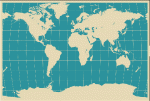Web catalog
Most read
Most read last 7 days
Most Discussed
Top rated
Statistics
- Total registered users: 10052
- Total articles: 23656
- Total comments: 2087
- Last entry: Kebo presenting evidence that Izetbegovic brought mujahideen to Bosnia
- Last update: 11.01.2019. 23:44
Morton Benson: Standard English-SerboCroatian, SerboCroatian-English Dictionary
Written 01.12.2009. 11:31
 I wouldn't comment on technical & pedagogical aspects of this book (nouns, declensions, adjectives etc.) As a native speaker of Croatian, I can see this book as (at best) an effort to give reader some basic stuff to linguistically get by in what used to be called "Serbian or Croatian diasystem" (funny phrase) or “Serbo-Croatian” language. But, give or take- this is basically a Serbian dictionary. I don't intend to nitpick, but a few things have to be addressed: Croatian and Serbian are different standard languages. Bosnian (or, more precisely, Bosniak) is in the process of standardization, and will certainly achieve the stable norm in near future. Also, there was not, ever, a "Serbo-Croatian" standard language. The same with "Portol" (Portuguese and Spanish), "Hurdu" (Hindi and Urdu), "Czechoslovakian" (Czech and Slovak) or "Bulgaronian" (Bulgarian and Macedonian). These are similar languages which crystallized out of basically the same dialectal "prime matter"- as is the case with bokmal Norwegian and Danish or Malay and Bahasa Indonesian. But to describe them as "variants of a language" (British and American English analogy is frequently (ab)used) is sheer nonsense. And here is the center of the paradox- entire books have been translated from one language to another. Probably the most bizarre case is Swiss psychologist Jung’s masterwork “Psychology and Alchemy”, translated into Croatian in 1986, and retranslated, in late 1990s, into Serbian not from the original German, but from Croatian. A translation and “translation’s translation” differ on virtually every page: orthographically, lexically, syntactically, semantically. Yet, to intensify the paradox: the two languages remain mutually intelligible to a very high degree for their respective speakers (especially on the colloquial level), which is the product of two different facts: virtually the same dialectal basis for both standard languages and effective bilingualism (still alive) as a result of living almost a century in one state.
I wouldn't comment on technical & pedagogical aspects of this book (nouns, declensions, adjectives etc.) As a native speaker of Croatian, I can see this book as (at best) an effort to give reader some basic stuff to linguistically get by in what used to be called "Serbian or Croatian diasystem" (funny phrase) or “Serbo-Croatian” language. But, give or take- this is basically a Serbian dictionary. I don't intend to nitpick, but a few things have to be addressed: Croatian and Serbian are different standard languages. Bosnian (or, more precisely, Bosniak) is in the process of standardization, and will certainly achieve the stable norm in near future. Also, there was not, ever, a "Serbo-Croatian" standard language. The same with "Portol" (Portuguese and Spanish), "Hurdu" (Hindi and Urdu), "Czechoslovakian" (Czech and Slovak) or "Bulgaronian" (Bulgarian and Macedonian). These are similar languages which crystallized out of basically the same dialectal "prime matter"- as is the case with bokmal Norwegian and Danish or Malay and Bahasa Indonesian. But to describe them as "variants of a language" (British and American English analogy is frequently (ab)used) is sheer nonsense. And here is the center of the paradox- entire books have been translated from one language to another. Probably the most bizarre case is Swiss psychologist Jung’s masterwork “Psychology and Alchemy”, translated into Croatian in 1986, and retranslated, in late 1990s, into Serbian not from the original German, but from Croatian. A translation and “translation’s translation” differ on virtually every page: orthographically, lexically, syntactically, semantically. Yet, to intensify the paradox: the two languages remain mutually intelligible to a very high degree for their respective speakers (especially on the colloquial level), which is the product of two different facts: virtually the same dialectal basis for both standard languages and effective bilingualism (still alive) as a result of living almost a century in one state.Croatian and Serbian differ in:
1. script (Latin and Cyrillic)
2. grammar and syntax (ca. 100 different syntactic rules)
3. morphology (ca. 300 different prescriptions. Also, Croatian is a purist language-unlike Serbian. Moreover, even "internationalisms" like organize are different: organizirati in Croatian, organizovati in Serbian. Bosniak language tends, in this respect, to overlap with Croatian- but not entirely, since it was subject of forced Serbianization in past 50 years and more).
4. vocabulary (ca. 20-30% of everyday vocabulary is different. The thesaurus of an average high school graduate is ca. 40,000 to 50,000 words. Draw the conclusion).
So, this dictionary will, at best, make you an "expert" in "pidgin South-Slavic". If this is enough- buy it. If you want more-avoid it.
























































 Kontaktirajte nas
Kontaktirajte nas
No comments